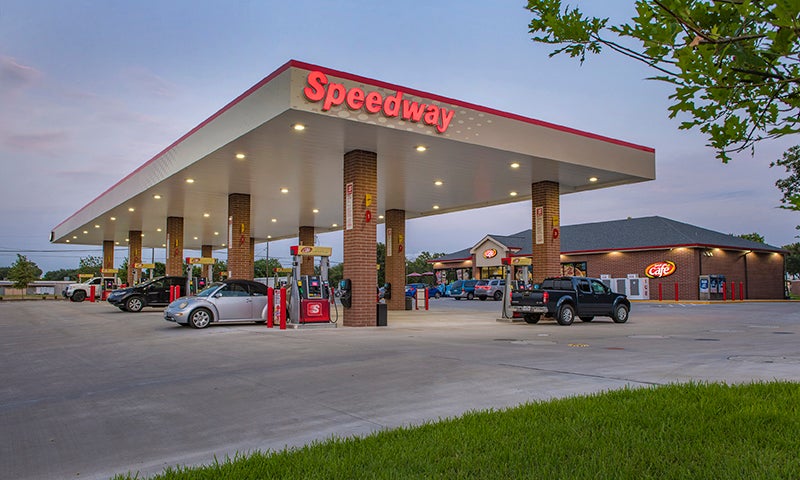
Marathon Petroleum has announced the sale of its filling station and store business Speedway to retail chain 7-Eleven, for $21bn.
The US-based convenience store company, owned by Seven & i Holdings, will pay for the deal in cash. After tax, Marathon expects to receive $16.5bn.
The agreement also included a 15-year fuel supply agreement with Speedway. Marathon will supply 35 billion litres (7.7 billion gallons) of fuel products to Speedway filling stations, of which there are almost 4,000.
In a statement announcing the sale, a Marathon spokesperson said the company saw the sale as “representing a significant value unlock”. It will use the earnings to pay off debts, protect its credit rating, and pay shareholders. Marathon will release details of these later.
The statement also said that the company expects some supply opportunities to open up as its existing agreements expire and as 7-Eleven expands its sites.
How the Speedway deal fits with the Marathon’s results
The company has felt a significant impact from the Covid-19 pandemic. In the first quarter of 2020, the company’s net losses were $9.23bn, compared to $7m in the same period a year before. This came as a result of income falling by $4.52bn and costs rising by $7.97bn, among other factors.
How well do you really know your competitors?
Access the most comprehensive Company Profiles on the market, powered by GlobalData. Save hours of research. Gain competitive edge.

Thank you!
Your download email will arrive shortly
Not ready to buy yet? Download a free sample
We are confident about the unique quality of our Company Profiles. However, we want you to make the most beneficial decision for your business, so we offer a free sample that you can download by submitting the below form
By GlobalDataOn Monday, the company shared its second quarter announcements. Marathon made a net income loss of $444m, compared to a gain of $2,098m in Q2 2019. The company’s refining and marketing segment alone made a loss of $1.6bn across the quarter, as a result of “lower demand associated with Covid-19, and lower crude differentials”.
After the close of the deal, Marathon’s share price quickly jumped up by over 10% when the New York Stock Exchange opened. The jump then slowly diffused, staying approximately 4% above the price when the market opened.
Marathon’s CEO speaks about the deal, results, and the market situation
Marathon president and CEO Michael Hennigan said: “Our announcement crystalises the significant value of the Speedway business, creates certainty around value realisation and delivers on our commitment to unlock the value of our assets.
“The sale creates a long-term relationship with 7-Eleven that enhances commercial performance potential through attractive fuel supply agreements and future growth opportunities. The transaction is anticipated to close in the first quarter of 2021.”
In the company’s earnings call, he highlighted the company’s goal of reassessing its business ahead of possible
“We’re making very difficult decisions to increase profitability, create stronger through-cycle earnings and drive long-term value creation. Despite the very challenging conditions in today’s market, we remain committed to those goals, and will continue each quarter to update the market as we progress.”
At the end of July, the company announces it would “indefinitely idle” two of its refineries, with no plans to resume normal activity. During the call, Hennigan gave an update: “Closures as a result of the tough refining business climate ahead of us have been amplified by the impact of the pandemic.
“At [the] Martinez [refinery], we are evaluating repurposing the refinery toward the production of renewable diesel. The facility has the ability to provide up to 48,000 barrels per day of renewable diesel. If pursued, production could begin as early as 2022 and would ramp up from there.






